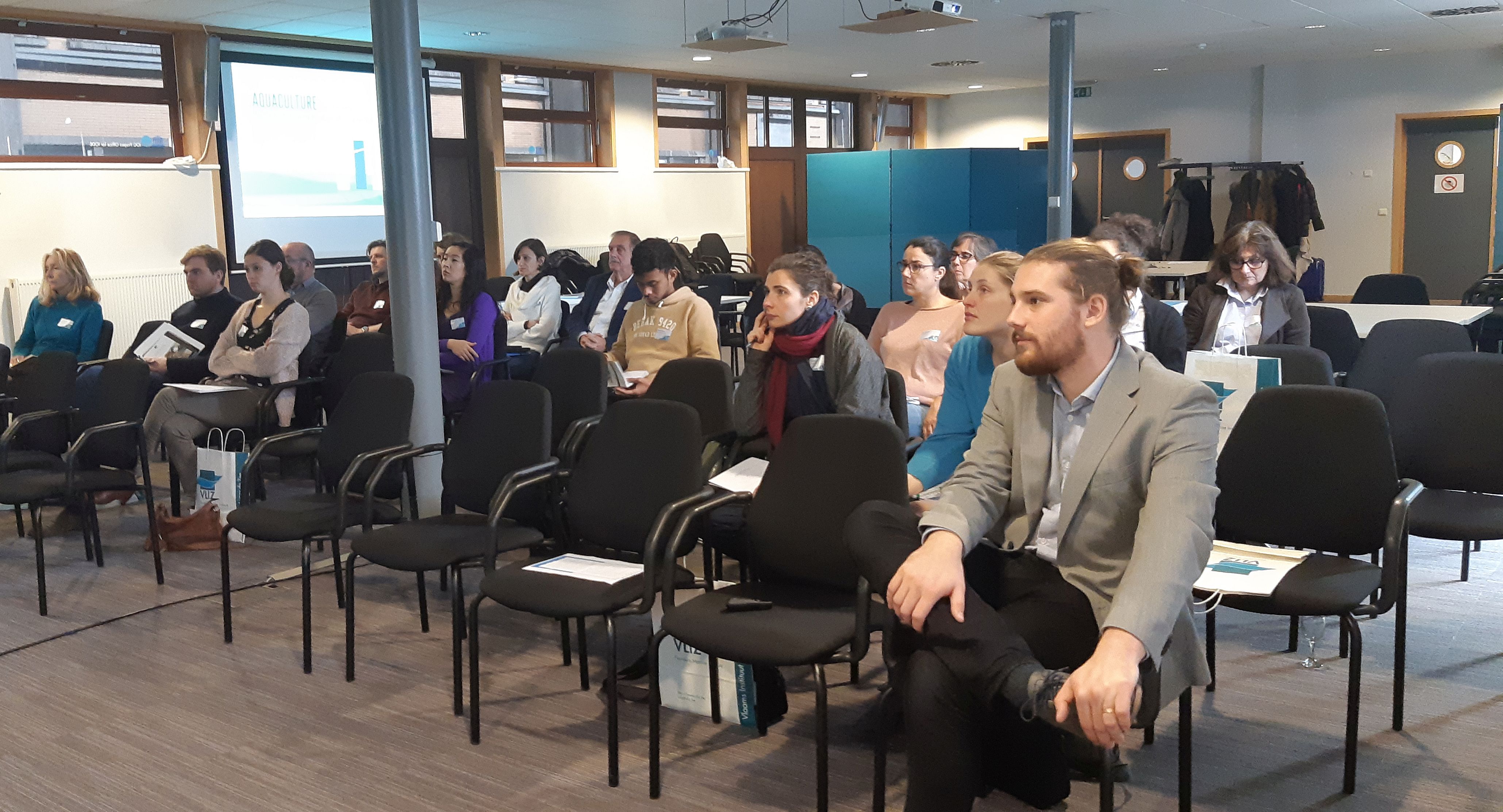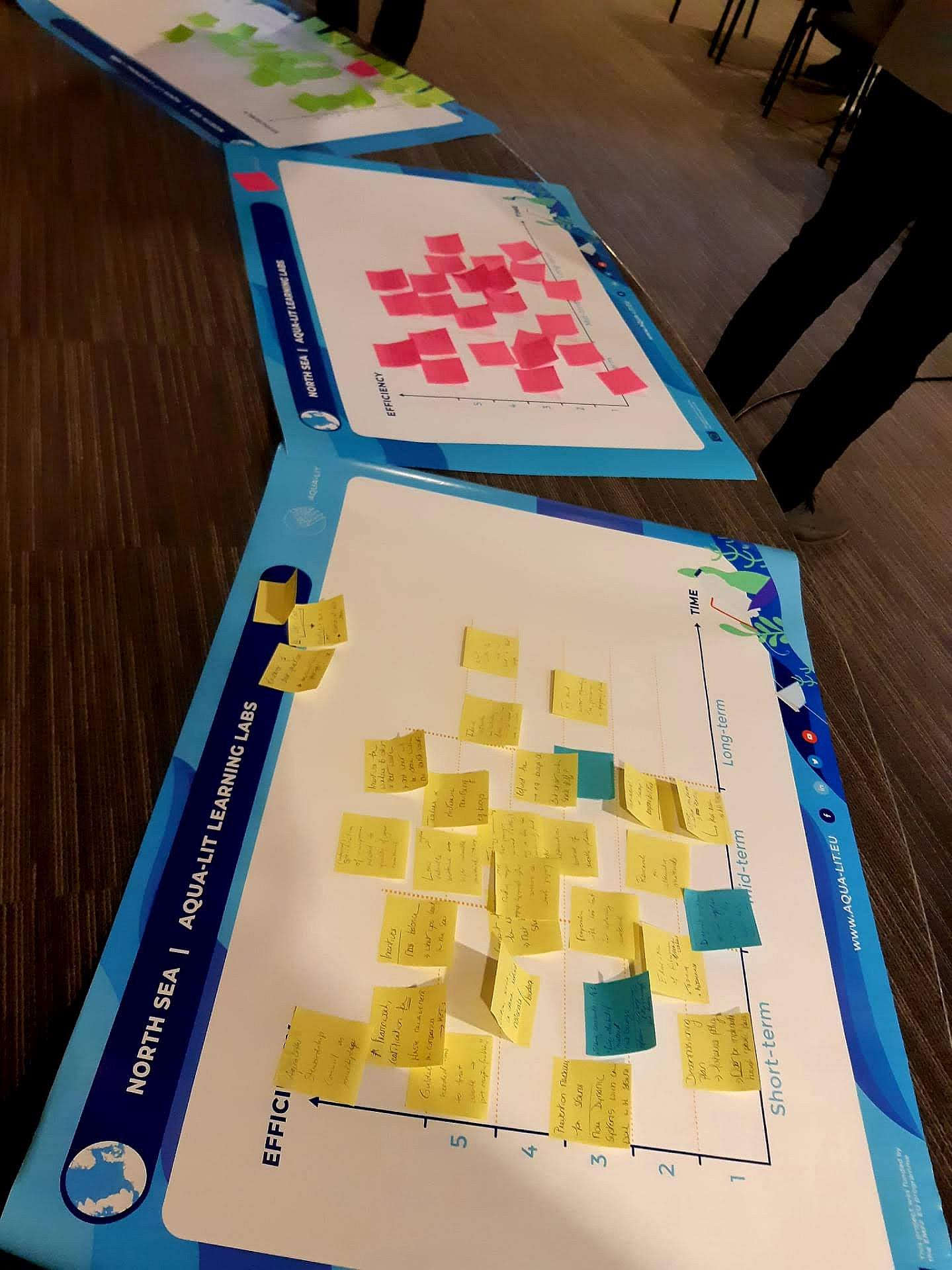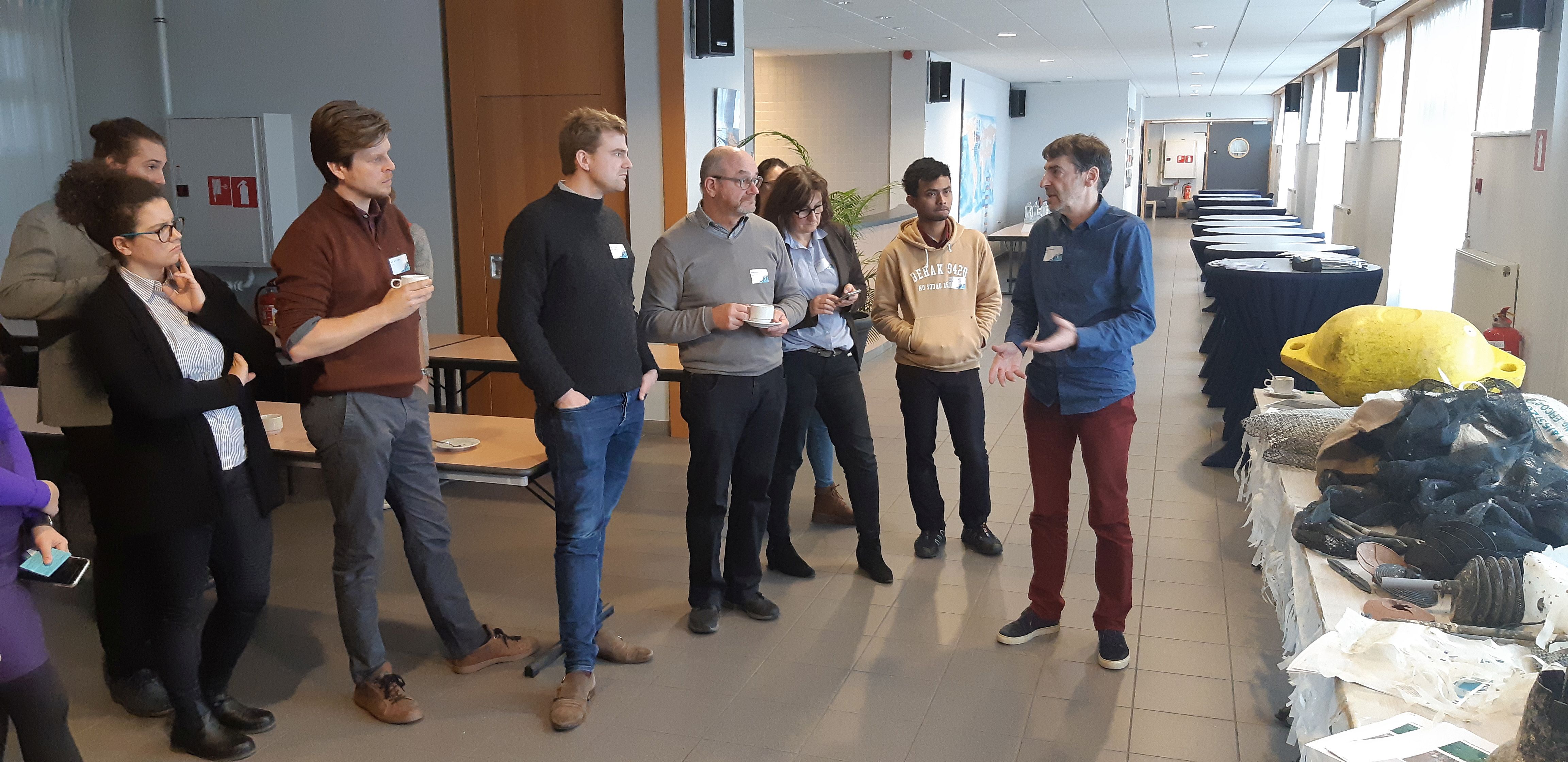
This interactive workshop assembled 15 stakeholders, and 6 members of the organising team, from the aquaculture sector in the North Sea region. The stakeholder group consisted of aquaculture farmers (fish, mussels and seaweed), aquaculture gear producers, researchers, start-ups, national authorities, etc.
The participatory method used during the Learning lab encouraged knowledge sharing, co-creation and development of mutually valued and acceptable tools from three perspectives:
- Prevention and reduction of litter from the aquaculture sector;
- Monitoring and quantification of litter from the aquaculture sector;
- Removal and recycling of litter from the aquaculture sector;

The solutions proposed ranged from incentives and taxes to the use of environmentally friendly gear alternatives. To prevent and reduce litter from the aquaculture sector, stakeholders stated that "one should go with the sea and not against it." There is a need to adapt to the rough conditions offshore with the related aspects of how to make installations sea-proofed and apply multi-use approaches.
Further, lost aquaculture related litter should be monitored and quantified at its source. Next to that, the lost items should be reported to the appropriate authorities and related to the concession.
The waste policy and management (collection and depositing) on concessions should be improved, clarified and specified. In addition, collaborations between different offshore companies (aquaculture farms, wind farms, etc.) could facilitate the monitoring, removal and recycling of the general waste and lost items.
Professional collection systems (vessels and harbour collection points) should be put in place and economic incentives should be introduced for offshore workers.
During the coffee break, Francis Kerckhof of the Royal Belgian Institute of Natural Sciences (RBINS) gave a demonstration on the different aquaculture litter items that end up on the Belgian shore. The majority of the recovered objects originate from the shellfish aquaculture activities in the English Channel.

The next LL will be focus on the Mediterranean region and will be held in Valencia (Spain) on 4th of February 2020.